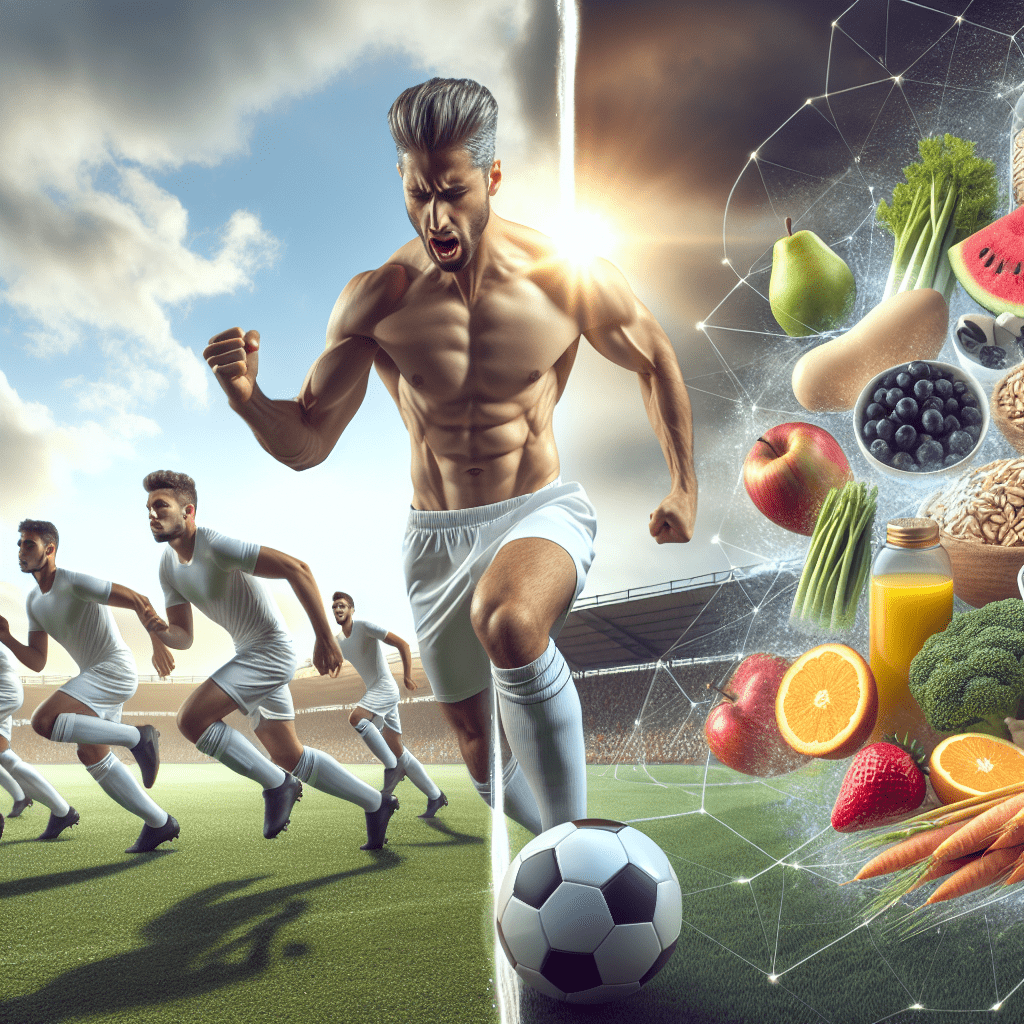[ad_1]
Fueling for the Field: Essential Nutrition Tips for Soccer Players
Soccer is a sport that demands high levels of physical fitness, agility, and endurance from its players. Given its rigorous nature, appropriate nutrition plays a pivotal role in optimizing performance and ensuring players can maintain their energy levels throughout the game. This comprehensive article is designed to guide soccer players on how to effectively fuel their bodies, including what to eat before, during, and after a game or practice, as well as addressing frequently asked questions to cover all nutritional bases.
Understanding the Energy Needs of Soccer Players
Soccer players need a balanced mix of macronutrients – carbohydrates, proteins, and fats – to perform at their best. Carbohydrates are particularly crucial as they serve as the primary fuel source during high-intensity activities. Proteins contribute to muscle repair and growth, whereas healthy fats support overall health. Besides macronutrients, adequate hydration and micronutrients like vitamins and minerals are essential to prevent cramps, injuries, and ensure peak performance.
Pre-Game Nutrition
Eating a meal 2-3 hours before a game allows the body sufficient time to digest and utilize the nutrients. This meal should be rich in carbohydrates with a moderate amount of protein and low in fat to facilitate quick digestion. Examples of pre-game meals include a bowl of pasta with tomato sauce and grilled chicken, a turkey and cheese sandwich on whole-grain bread with a side of fruit, or a quinoa salad with mixed vegetables and a lean protein source.
Hydration is also a key part of pre-game preparation. Players should aim to drink approximately 500ml of water 2 hours before the game to ensure they start well-hydrated.
During the Game
Maintaining energy levels during a soccer match is crucial, especially in the second half when fatigue starts to set in. Players can benefit from consuming small amounts of carbohydrates to keep energy levels up. This can be through sports drinks, which also replace electrolytes lost through sweat, or energy gels that are specifically designed for athletes to quickly absorb and utilize.
Drinking water during breaks is also essential to prevent dehydration. However, it’s important not to overhydrate as it can lead to discomfort and performance issues.
Post-Game Nutrition
Recovery starts as soon as the game ends. Eating a mix of carbohydrates and protein within 30 minutes to an hour after the game supports muscle recovery and replenishes glycogen stores. A protein shake with a banana, a yogurt and fruit parfait, or a chicken and vegetable wrap are good options. Continuing to hydrate after the game is equally important to replace fluids lost during play.
Regular Training Days
On non-game days, players should focus on a balanced diet that supports their training regimen. This includes consuming a variety of foods from all food groups to ensure they get all the necessary vitamins and minerals. Carbohydrate intake might need to be adjusted based on the day’s activity level, with higher intake on heavy training days and less on light or rest days.
The Importance of Micronutrients
Besides macronutrients, micronutrients like iron, calcium, and vitamin D play significant roles in a soccer player’s diet. Iron helps with the transportation of oxygen to muscles, calcium and vitamin D are crucial for bone health, and antioxidants from fruits and vegetables help with recovery and reducing inflammation.
Supplementation can be considered if it’s challenging to meet nutritional needs through diet alone, but it’s advisable to seek advice from a healthcare professional before starting any supplements.
FAQs Section
Q: How much protein do soccer players need?
A: Soccer players need about 1.2 to 1.7 grams of protein per kilogram of body weight per day for muscle repair and growth. This should be adapted based on individual needs and activity levels.
Q: What are the best hydration practices for soccer players?
A: Soccer players should aim to drink water throughout the day, not just during and after games. A good practice is to monitor the color of your urine – pale yellow indicates proper hydration. During games, take advantage of breaks to sip water and use sports drinks if necessary to replenish electrolytes.
Q: Are energy bars and gels good for soccer players?
A: Energy bars and gels can be beneficial during extended play or when quick energy boosts are needed. However, they should not replace whole foods in the diet. Choosing products low in added sugars and high in natural ingredients is best.
Q: How can soccer players maintain energy levels during prolonged tournaments?
A: Proper nutrition before, during, and after games is crucial. Additionally, packing snacks like fruit, nuts, and yogurt can help maintain energy levels throughout the day. Managing portions to avoid feeling overly full or sluggish during games is also important.
Q: Is caffeine beneficial for soccer players?
A: Caffeine can enhance performance by increasing alertness and concentration. However, it should be used judiciously as it can also lead to dehydration and sleep disturbances. Limiting caffeine intake to 3-6 mg per kg of body weight and avoiding it in the evenings can mitigate potential downsides.
Conclusion
Nutrition significantly impacts the performance of soccer players. A well-planned diet that meets energy demands and provides all the necessary nutrients can enhance play, aid recovery, and minimize the risk of injury. By focusing on balance, timing, and hydration, soccer players can ensure they are fully prepared to excel both on and off the pitch. Remember, individual needs can vary greatly, so listening to your body and possibly consulting with a sports nutritionist can help tailor a plan that best suits your performance goals.
[ad_2]






